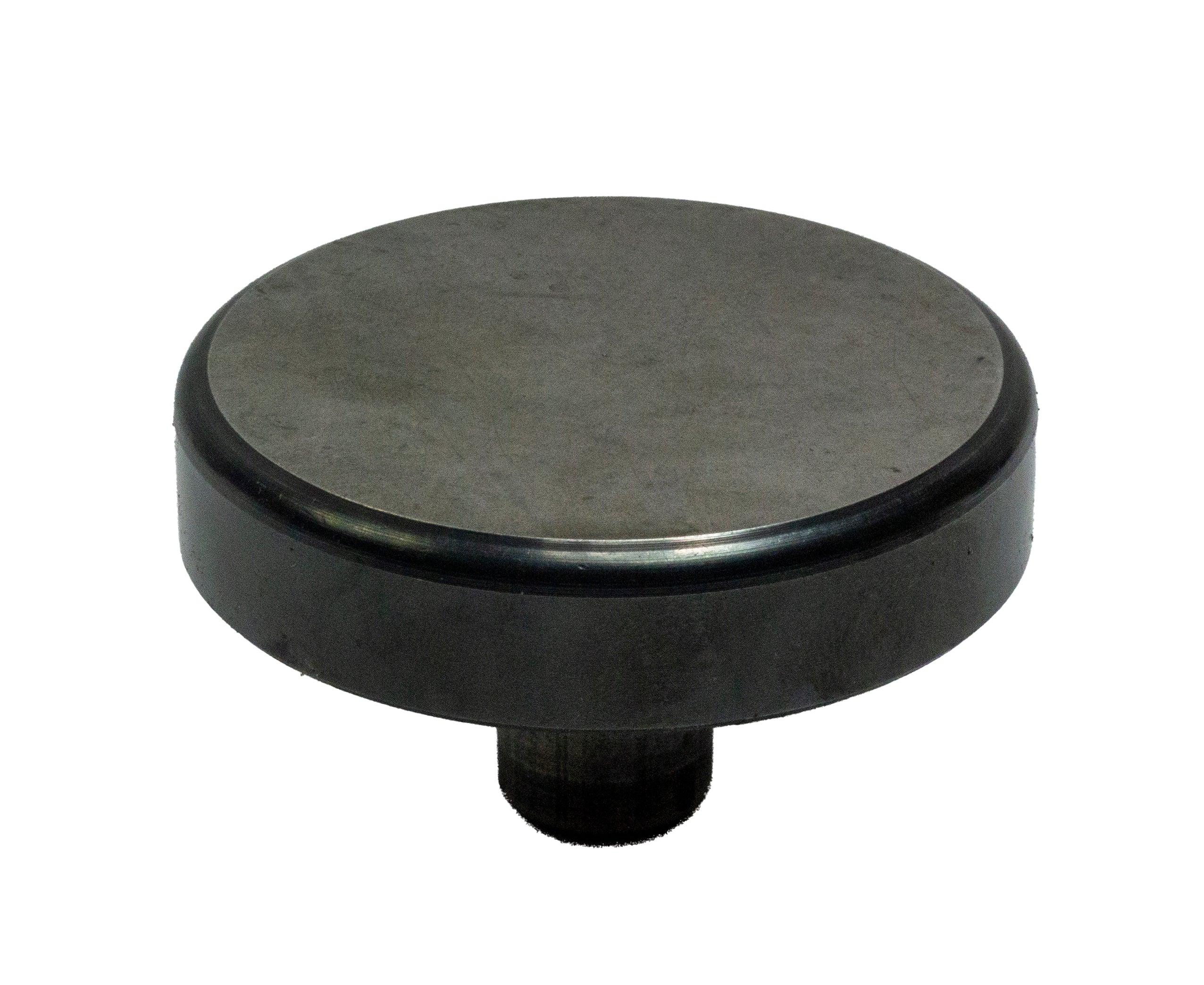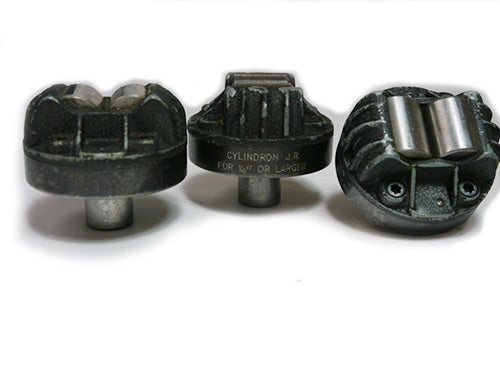Anvils for Hardness Testers










Anvils for Hardness Testers
- V (Vee) anvils are used for cylindrical shaped rods or tubing
- Flat anvils are primarily used primarily for small and large test specimens that are flat
- Anvil, Cylindron (Roller Anvil) is designed to support cylindrical work
Why is it important to use an Anvil?
Anvils help ensure accurate test results by supporting the test specimen during the application of the major load during a hardness test. Rockwell anvils are compatible with most Rockwelhardness testers.
What happens if I don’t use the proper anvil for my test specimen?
Just one regular Rockwell hardness number represents a vertical movement of the penetrator of only 0.002mm, or 80 millionths of an inch (0.000080 inch) One superficial Rockwell number represents a vertical movement of 40 millionths of an inch (0.000040 inch). A vertical shift of the part being tested of only 0.001 in. will lower the Rockwell reading by more than 10 numbers on the regular and 20 numbers on the superficial scale.
How it works ?

STEP 1
Choose the correct Anvil and add to cart

STEP 2
Confirm the order
Make sure all your info is correct

STEP 1
Track the order
by tracking number
